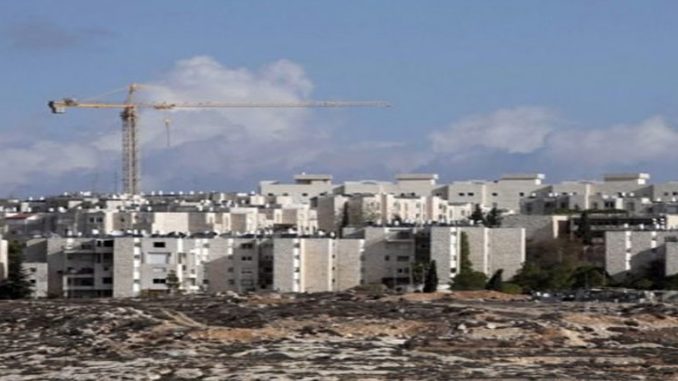Legal rights groups Adalah and the Jerusalem Legal Aid and Human Rights Center (JLAC) presented the petition on behalf of 17 Palestinian municipalities whose lands will be affected by the new law, calling on the Supreme Court to strike it down.
The court gave the Israeli government a month to legally justify its adoption of the law, also known as the “Formalization law,” Israel Radio reported.
The “Regularization law” states that any settlements built in the occupied West Bank “in good faith” — without knowledge that the land upon which it was built was privately owned by Palestinians — could be officially recognized by Israel pending minimal proof of governmental support in its establishment and some form of compensation to the Palestinian landowners.
Israeli Attorney General Avichai Mandelblit has repeatedly stated that the legislation contravenes both Israeli and international law, as it applies civilian law instead of martial law in the occupied Palestinian territory, and that the Israeli Supreme Court would likely strike it down.
Meanwhile, Abbas said in a speech in front of the French senate on Wednesday that the “Formalization law” was legalizing the “theft” of Palestinian lands and “challenging” the international community, especially in light of a recent United Nations Security Council resolution condemning illegal Israeli settlements.
The Palestinian Authority (PA) president said that if a two-state solution could not be reached through internationally monitored negotiations, all nations who recognized the state of Israel should also unilaterally decide to recognize a state of Palestine.
He added that he would continue appealing to international courts and bodies to protect Palestinian rights, as Hebrew-language news sites reported that Abbas had threatened to end the PA’s security coordination with Israel if it continued its settlement expansion.
The international community, including France, has reacted strongly against the “Regularization law” since it passed on Monday.
United Nations Secretary-General Antonio Guterres said on Tuesday that the measure would have “far-reaching legal consequences” for Israel, and insisted “on the need to avoid any actions that would derail the two-state solution.”
A spokesperson for Germany’s Ministry of Foreign Affairs said in a statement on Wednesday that “our trust in Israel’s commitment to the two-states solution has became very weak following (the passage of) the law in the Knesset.”
The government of Japan, meanwhile, said that it “deeply deplored” the adoption of the law, and called on Israel to “fully freeze settlement activities.”
While members of the international community have rested the solution to the Israeli-Palestinian conflict on the discontinuation of illegal Israeli settlements and the establishment of a two-state solution, Israeli leaders have instead shifted further to the right, with more than 50 percent of the ministers in the current Israeli government publicly stating their opposition to a Palestinian state.
A number of Palestinian activists have criticized the two-state solution as unsustainable and unlikely to bring durable peace given the existing political context, proposing instead a binational state with equal rights for Israelis and Palestinians.


